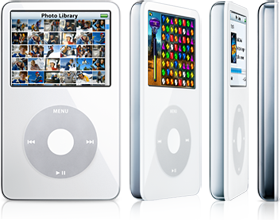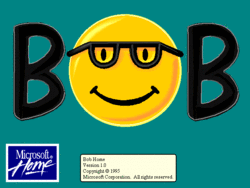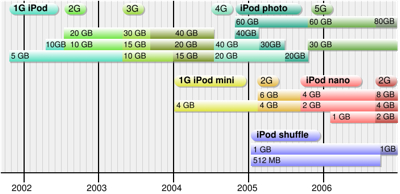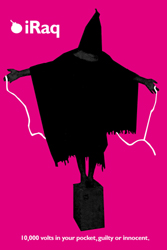Thank you, Radical Islam
Posted by in Tech,War at 12:52 p.m. on Sept. 16th, 20060 Comments 0 Pings
For the 80GB iPod, that is.

Nothing stimulates progress like competition. Take World War II, for example. In 1939, most of the world’s air forces were still flying biplanes. Some countries, like Poland, were still doing cavalry charges with actual horses. These countries were pretty much all eliminated in the first round of the playoffs. Just six years later, the countries that actually wanted to win were flying rocket-planes and throwing atomic bombs at each other. That’s progress.
In the mid-90’s, various Cold War projects culminated in the Internet revolution. Developed in response to the Russians’ supposed technological advances, which were mostly vaporware, these closely-held DARPA and NASA projects flooded the private sector once the Berlin Wall fell, and the Russians limped out of Europe. That’s why we can sit at home today while idly browsing the Library of Congress or, more likely, bitterly masturbating to old Bangles videos on YouTube.
Let’s face it: Once the Nazis and Russkies were out of the picture, it was hard to get out of bed in the morning. The Clinton era was an eight-year smoke break in the march of high-tech materialism. Screaming like a girl and running away from competition, like in Mogadishu, was a viable strategy for the country, and it was reflected in such products as Microsoft Bob and the Mac clones.

The face of the Clinton era
But September 11, 2001 changed all that. The market’s malaise was replaced by frantic acceleration; just six weeks after the towers came down, Steve Jobs announced the first iPod. With just 5 gigabytes of storage, this wasn’t the device that was going to destroy our new competitors, the jihadis. But it was a first step, and everybody could see where it was headed: Total market domination.

In the last 5 years, the American iPod has progressed dramatically. Looking at the timeline, one can see that the sleeping media storage giant has stirred, and is rapidly approaching the 100 GB mark. With a strong presence in both the high-end and low-end market segments, many analysts believe the Radical Islamic media player may have been squeezed out before it has even shipped.

In stark contrast, Radical Islam’s iPod has yet to reach the market. In-fighting among the various design teams, not to mention the fact that music and dancing are forbidden by Islam, has hampered progress on the device. Marketing campaigns, clearly influenced by the American iPod’s own, have failed to rouse interest in the device among jihadis, probably owing to the subliminal association drawn between wearing it and receiving electrical-shock genital torture.
In hindsight, the Global Jihad probably should’ve held back their attack on the World Trade Center until they were further along in their development cycle. Instead of taking advantage of the initial buzz, they’ve stagnated and fallen behind. At this point, they’ll have difficulty even joining the race, much less catching up to the strong offerings from Apple and Microsoft.
Competition is necessary for a healthy market. Although the iPod is a great product, it may begin to suffer from its own monopoly. In situations where competition doesn’t exist, everybody loses. That’s why Radical Islam needs to buckle down, and bring its portable media device to market.
